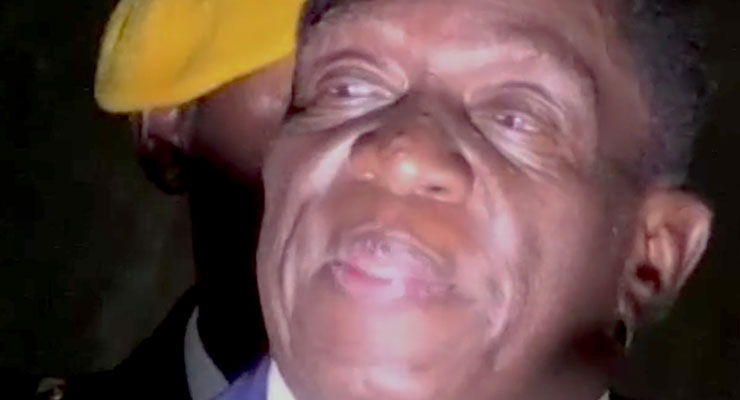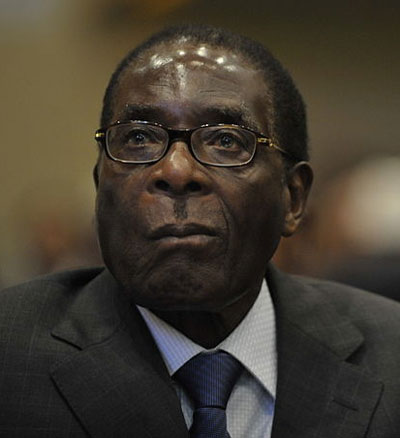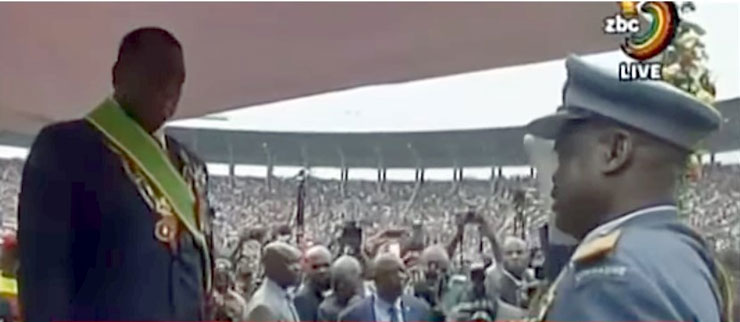
President Emmerson Mnangagwa recently said that he would announce the date of the harmonized elections anytime after 12 February. The big question is whether voters will choose the ruling ZANU-PF party led by Mnangagwa who has never been directly elected or the Movement for Democratic Change (MDC) Alliance a grouping of six political parties led by former prime minister and longtime opposition leader Morgan Tsvangirai. Both Tsvangirai and Mnangagwa have vowed a push towards globalization and Zimbabwe’s relationship with the Britain and the rest of the world.
When are the elections in 2018?
Veritas, a trusted local Non-Governmental Organization that provides information on the work of the Parliament of Zimbabwe and the Laws of Zimbabwe and makes public domain information widely available, has been running an election watch series providing electoral information in the run-up to the elections. In its first bulletin in May 2017, Veritas said the elections will likely be held between July 23 or August 21 at the latest.
Veritas said the polling date of the next general elections was determined by what the existing Constitution says about the duration of Parliament, citing section 143(1), which states that Parliament is elected for a five-year term, which runs from the date on which the President-elect is sworn in and assumes office.
“The President was sworn in on August 22, 2013, so the five-year term of Parliament ends at midnight on August 21, 2018,” the bulletin read. “The earliest date for polling is July 23, 2018. This is based on section 158 [Timing of Elections], which states that: ‘(1) A general election must be held so that polling takes place not more than … 30 days before the expiry of the five-year period specified in section143’.
“The provisions on the timing of general elections differ from those in the old constitution. The present constitutional provisions were a deliberate change from the provisions in the old constitution in which five years was only a maximum term for Parliament and the President could dissolve Parliament by Presidential Proclamation whenever he wanted before the five-year term had expired.”
What is new about this election?
ZANU-PF has run Zimbabwe since independence from Britain in 1980, but the old model has been shattered with the coming in of what locals are calling the “new dispensation” after the fall of Robert Mugabe last November with the help of a military coup.
An unpopular and divided ruling ZANU-PF party is trying to rebrand itself and promote the country as a safe investment destination. Mnangagwa has visited several neighboring countries; he has also been to the Davos World Economic Forum were he met over 60 global leaders. After Davos, Mnangagwa took his bidding to the African Union Head of State meeting and is set to visit China in April to preach the same gospel of a “new Zimbabwe” open to investment. The move is an apparent bid to broaden his appeal by creating artificial distance between his run for power and his party’s hard-line policies that ruined the economy over the past 38 years.
Whoever wins, Emmerson Mnangagwa or Morgan Tsvangirai, Zimbabwe will have a president with an agenda for change. ZANU-PF currently has an outright two-thirds majority in parliament and the MDC currently has less than 100 Parliamentary representatives. The MDC has also already won control of several towns including the capital Harare. In general MDC efforts at local governance have involved dealing with historically poor service delivery that the new city fathers blame on incessant government interference.
However, Tsvangirai’s MDC is a party with a track record, a known quantity which once won a majority in parliament in 2008. Set up in October 1999, when Tsvangirai was a trade unionist, it has since contested several elections.
What is at stake?
Voters will be making a decision on Zimbabwe’s future direction and on its place at the heart of the African Union. If they opt for Morgan Tsvangirai, they will be backing an alliance which seeks political and economic reforms as well as deeper international integration, in the form of more open economy.
If instead they choose Emmerson Mnangagwa, judging from his speeches and interviews, they get quite the same promises. He also wants Zimbabwe to be more open to trade and investment. “We are saying to the world now that Zimbabwe is now open for business,” he said recently at the annual Davos. The assumption is that he would win election on the basis of creating a new Zimbabwe enjoyed by all.
Who will win?
It’s probably too early for opinion polls however, the opposition failed to capitalize on the fall of Mugabe and frustration created after a unity government was not formed. If the opposition does not break into traditional ZANU-PF strongholds where intimidation and harassment is rife, ZANU-PF is aiming for a big victory in the first round. The party has roped in former military personnel within its structures. General Constantino Chiwenga, who led the November coup and was retired from the Zimbabwe Defence Forces, has taken up the position of Vice-President and second secretary of the country and ruling party respectively.

Retired Air Chief Marshal (of the airforce) Perrence Shiri is now Minister of Lands, Agriculture and Rural Resettlement and retired Lieutenant-General Sibusiso Moyo (the man who appeared on television announcing the coup) is now Minister of Foreign Affairs and International Trade. Both are committee members in the politburo, the highest seating body of the party in between congress. The party’s commissariat mandated with drumming up support is now headed by retired Lieutenant-General Elgelbert Rugeje.
The MDC Alliance’s best hope may be if urban voters turn out in large numbers on election day. However, this may be impossible considering that rural voters are in large part forced into voting for ZANU-PF through intimidation and harassment – already too rife.
Some reports say ZANU-PF members are recording serial numbers from the slips of proof of voter registration. Voters are said to have been threatened that through these serial numbers the party will be able to know how they would have voted. Although there is no way ZANU-PF would be able to note how an individual voter has voted through serial numbers by using these voter registration slips, the empty threats should be taken seriously as an attempt to force people to vote for a candidate against their will.
What are the election main issues?
Although the political parties are yet to release manifestos, one of the overriding issues facing Zimbabwe voters is unemployment, which unofficial figure say hovers around over 80 percent and is one of the in the highest in the world. The Zimbabwe economy has made a slow recovery since the downward spiral from the late 90s but all the leading candidates say deep changes are needed.
Economic challenges facing the next president
The two candidates have each publicly agreed to plans to renationalize Zimbabwe’s debt, which is currently about $13 billion. Both want to cut government jobs, reduce wage bill from the current 85 percent to about 40 percent of the total budget, and plough billions into investment to reduce unemployment.
Hopefully, no matter who wins, Zimbabwe will change for the better.

Leave a Reply